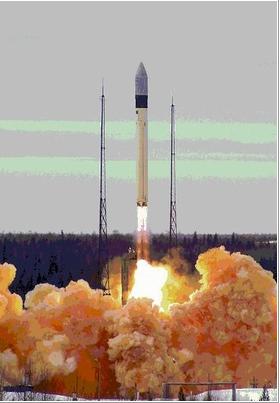The spacecraft was supposed to orbit the Earth before separating from the rocket's upper stage 90 minutes after launch. However, at the control center they failed to receive signals from the spacecraft indicating that the process was crowned with success.
Avi Blizovsky

At the control center, concerns about the fate of the European glacier monitoring spacecraft Cryost are growing.
The spacecraft, which cost 180 million dollars, was launched on Saturday, October 8.10.05, 18 at 02:90 Israel time from the cosmodrome in Plastekt in northern Russia. The spacecraft was supposed to orbit the Earth before separating from the rocket's upper stage XNUMX minutes after launch. However, at the control center they failed to receive signals from the spacecraft indicating that the process was crowned with success.
Volker Leibig, director of the Earth observation program at the European Space Agency, said that this does not mean that the spacecraft is lost but that it raises the level of concern among the teams involved in the project.
"We have no data about the state of the spacecraft and whether the separation was carried out or not and whether the satellite is in good condition." He told scientists gathered at the agency's Space Science Institute near Rome that it had been delivered from the launch site by satellite.
The same people cheered an hour and a half before the successful launch in the dense forest around the launch pad when the rocket and the satellite on it took off towards the orbit.
The satellite carries inside it a sophisticated radar and an altimeter that will make it possible to measure the height and angle of the glacial surface in the Arctic and Antarctic regions with greater precision than before.
